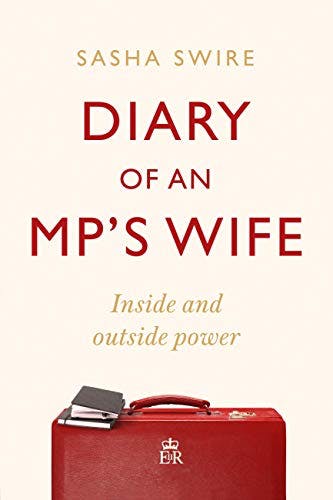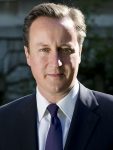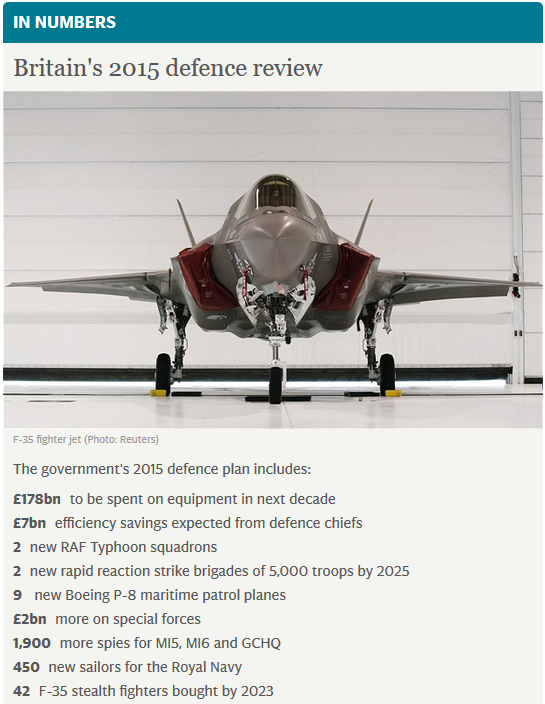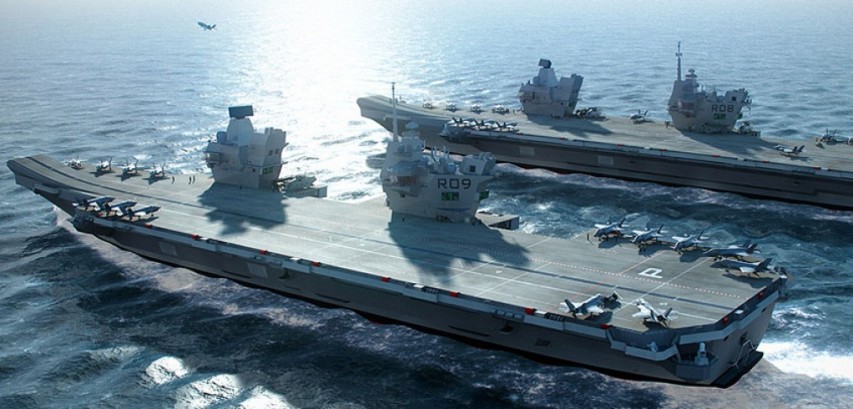… the Wilson government wasn’t an aberration, for political history is littered with examples of people being found out, often in the most embarrassing possible circumstances. Now that he’s remembered as a byword for complacent failure, it’s easy to forget that David Cameron was a straight-A student who won an exhibition to Brasenose College, Oxford and was described by his tutor, Professor Vernon Bogdanor, as “one of the ablest” students he’d ever taught. (By now you should have spotted a theme.) An even more glaring example, however, comes from across the Atlantic.
Google “Michael Ignatieff” and you wonder if it was really legal for one man to have enjoyed so many blessings. Everything the Canadian intellectual touched turned to gold. At boarding school in Toronto in the Sixties he was captain of the soccer team and editor of the yearbook. He taught at Oxford and the London School of Economics. He presented The Late Show for the BBC and wrote columns for the Observer. His documentaries won awards; his biography of Isaiah Berlin was shortlisted for some of the world’s most prestigious non-fiction prizes; his novel was even shortlisted for the Booker Prize. He was awarded a professorial chair at Harvard, then another at Toronto. And when his friends in the Canadian Liberal Party invited him to make a bid for the leadership, further glory seemed inevitable.
What happened next, however, makes Kwarteng’s stewardship of the Treasury look like a triumph. In 2011 Ignatieff led the Liberals to the worst defeat in their history, finishing third with just 34 seats. What was worse, he even lost his own seat in Etobicoke–Lakeshore, the first Canadian opposition leader to do so since 1900. His staff were in tears, the world was watching, and all those book prizes must have seemed an awfully long way away. In the cruellest twist imaginable, the man who always came top in exams had failed the most public exam of all.
Dominic Sandbrook, “Kwasi Kwarteng was the wrong sort of clever”, UnHerd, 2022-10-17.
January 20, 2023
QotD: Michael Ignatieff
September 24, 2020
I thought we were supposed to speak well of the (politically) dead
In The Critic, Nigel Jones examines the soon-to-be-published “political tittle-tattle” of the wife of an MP and junior cabinet minister during David “Dave” Cameron’s premiership:
For anyone who has been holidaying under a rock for the past fortnight and may have missed the furore, I should explain that Lady Swire, daughter of Mrs Thatcher’s former Defence Secretary Sir John Nott, is the wife of ex-Tory MP Sir Hugo Swire, an Old Etonian chum of David Cameron, who somehow failed to be promoted beyond the ranks of junior ministers during his pal’s Premiership, but remained a close confidante and boon holiday companion to the PM. Lady Swire herself is half-Slovenian, and though brought up in the bosom of the Tory establishment, may not be entirely attuned to the evasions, hypocrisy and double standards that make up British political life, which makes her book all the more enjoyable.
Throughout Dave’s inglorious time in office, Lady Swire kept a secret diary detailing intimacies of conversation, banter and badinage, and revealing insights that give – shall we say – a not wholly flattering picture of the ruling Tory clique at play during their most unguarded moments. The bad behaviour, petty jealousies and embarrassing remarks of Dave, George, Boris and Michael and their wives are set down in all their toe-curling cringeworthiness.
The diaries are to be published next week but have been serialised in The Times and reviewed and widely commented on in the rest of the media. The two main targets – the duopoly of Cameron and Osborne – have already expressed their displeasure at the revelations. But all the tut-tutting disapproval of Lady Swire’s profitable indiscretions misses the main point: there is nothing that the British public relishes and enjoys more than an exposé of their leaders with their dignity gone and their metaphorical trousers down.
Moreover, gossip and tittle tattle as set down in diaries often tells us more about the true nature of politics and the motivations and personalities of politicians than a thousand self-serving pompous political memoirs or dull works of dry political analysis. What we really want is gossip – the gamier the better – and all the inconvenient truths our rulers rather we didn’t know.
Very often what we learn from particular epochs of history are the telling anecdotes and juicy titbits revealed by diarists rather than the respectability that the statesmen themselves wish to present and be remembered for. Our picture of the Restoration of the monarchy in 1660, for example, and the very merry court of Charles II, along with the apocalyptic disasters of fire and plague that followed comes largely from the indiscreet journals of Samuel Pepys, Daniel Defoe, and John Evelyn.
October 9, 2019
Theodore Dalrymple on Justin Trudeau and David Cameron
He doesn’t hate either of them, he just thinks they are either fools or knaves. As the Instapundit often says, it might be time to “embrace the healing power of ‘and'”:
No doubt it is the mark of bad character to rejoice, as I do, in the spectacle of a man being hoist with his own petard, and as the Canadian Prime Minster, Justin Trudeau, has recently been hoist. And while I am at it, I confess also that, though I know that there is no art to find a mind’s construction in the face, I cannot help also but judge people, at least to an extent, by their physiognomy. And the fact is that Mr Trudeau has a face as characterless as that of the former British Prime Minister, David Cameron. They are of the same ilk. You look at them and think “What nullities!” The main character discernible in their faces is lack of character.
David Cameron’s official portrait from the 10 Downing Street website, 3 August 2010.
Open Government Licensed image via Wikimedia Commons.It is not their fault, perhaps; besides which I, or you, might be mistaken in our assessment of them and actually they have backbones (or what my teachers use to call moral fibre) of enormous strength. In any case, there are worse things to be, especially in the field of politics, than a nullity: an evil monster, for example, would be far worse, and no one could seriously claim that either of Messrs Trudeau and Cameron are, or were, evil monsters, however little they inspire admiration.
No one, then, could accuse me of partiality for Mr Trudeau, and the abjectness of his apology for his behaviour when he was a very young man did nothing to increase my liking for him. But it seems to me that sins as a young man were venial at worst, a callow disregard of the sensibilities of others which I common in youth. I very much doubt that he was a deep-dyed racist in any dangerous way, more a silly boy having a bit of fun.
There is a serious side to this imbroglio, of course. If the political leader of an important country can be overthrown or not re-elected on so relatively trivial a ground, while at the same town no one cares in the least about his shallow but dangerous moral posturing and obviously weak-minded pandering to the ayatollahs of an absurd and ill-founded political morality, then a new nadir of decadence and cowardice has been reached. It is a difficult question of moral philosophy as to whether it would be worse if Mr Trudeau actually believed his own political correctness or merely made use of it as a means to power. If the former, he is a fool; if the latter a knave. I leave it to others to decide which is better in a politician, or indeed in any other human being, foolishness or a knavery.
Political correctness is dangerous because when fools or knaves get into power, they may try to implement its dictates. And since many people are much more concerned to appear good than to do good, and since they are unlikely to suffer the consequences of their own actions (except when hoist on their own petard), the implementation may continue for a long time after the negative effects of its dictates have become clear. When implemented, those dictates create a clientele dependent upon their continuation, which turns any attempt to undo the harm into a nasty social conflict.
June 17, 2019
Britain’s Conservative Party – the Quisling Right
Sean Gabb outlines recent British history, with emphasis on “the project” — the gradual take-over of the educational and cultural power-centres of Britain by a self-styled new ruling class and the total melt-down of the Conservatives:
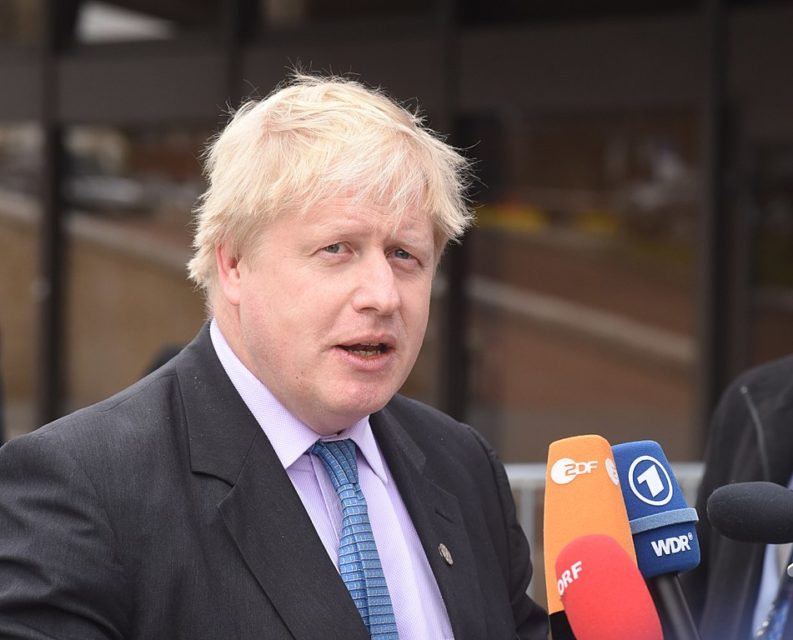
Boris Johnson, Secretary of State for Foreign and Commonwealth Affairs at an informal meeting of the Foreign Affairs Council on 15 February 2018.
Photo by Velislav Nikolov via Wikimedia Commons.
I will begin with what I believe has been a loose Project unfolding through my entire life. Since about the 1960s, we have seen the rise of a new ruling class, committed to the transformation of Britain into a new sort of country. Because I have discussed the Puritan Hypothesis at some length here and here, I will now give only a summary. In short, the new ruling class wants to reshape our thoughts into its own conception of The Good. This means a long-term project of securing cultural hegemony through control of education and the media, and a shorter-term project of compelling us to act as if we already believed in the new order of things. Though I will emphasise that it is in no meaningful sense either Marxist or socialist, the overall Project has been carried through by a careful use of what Louis Althusser called the ideological state apparatus and the repressive state apparatus.
One important element of this Project has been to maintain the appearance of political diversity. Because Britain — or at least England — is a rather conservative nation, this means ensuring a Conservative Party that makes conservative noises, but never does anything measurably conservative. I spent several years after 1997 grumbling about “the Quisling Right.” Though I have mostly fallen silent since then, here it is the idea of the Quisling Right briefly stated in a speech I gave in 2005 during a debate with Boris Johnson.
Though I will not call their predecessors real conservatives, the Conservative Party was taken over in 2005 by a small group headed by David Cameron. These people spent the next five years making vaguely conservative noises, without ever challenging the new order of things that had come fully into shape under the New Labour Governments. Because of this, they failed to win an election against Gordon Brown, but were able to form a coalition government with the Liberal Democrats, who were just as committed to the new order of things as Labour.
[…]
I think it a reasonable conclusion that the Conservative Party is the Quisling Right — and, or but, or both, that it is run by a clique of politicians unfit for any conceivable purpose. Theresa May will leave office with the label fixed to her of the worst Prime Minister in history. But the reason she was able to last so long is that she had no obvious replacement. As I write, her most likely replacement is Boris Johnson. He is lazy. He is unprincipled. He is a thug. He is an adulterer who paid for at least one of his mistresses to have an abortion. He was a ludicrous Mayor of London. He was the worst Foreign Secretary I can recall. This Conservative Government has landed us in a first-class national and international crisis. It has provoked the European Union into refusing to entertain any leaving terms short of the ruinous. It has made no good preparations for leaving without a deal. It has landed us in a position where the best exit involves throwing ourselves on the mercy of the Americans, and to hope that they will treat us no more ruthlessly than they did in 1940. The last person we should ask to navigate this crisis is Boris Johnson.
It seems the sheep in the Parliamentary Party have agreed he is their only hope of keeping their seats at the next election. Perhaps the Party membership will be taken in by his Churchillesque wind-baggery. But this will not do. He will be brushed aside by the Europeans. He will be taken for a ride by his fellow Americans. That is if, before then, he can avoid a general election in which he will by murdered by Jeremy Corbyn. I am told, in his defence, that only he who is without sin should cast the first stone. Well, I have never done what Boris Johnson so far has. So, if I am not the first to ask for one, hand me a stone, and make it a big one.
No conspiracy here. These people have failed us. But it was never their purpose to do otherwise. More importantly, they have failed the Project. For that, I suppose, we should feel minimal gratitude. Even so, their survival in office for so long raises a further question with no comforting answers. How could a clique of total incompetents have been allowed, without meaningful challenge, to take over and run into the ground one of our main parties of government? What does this say about us as a people?
December 14, 2016
Niall Ferguson’s “Bremain” recantation
Niall Ferguson regrets sacrificing his principles to help his friends stay in power:
The three words you are least likely to hear from an academic are “I was wrong.” Well, I was wrong to argue against “Brexit,” as I admitted in public last week. By this I do not mean to say “I wish I had backed the winning side.” Rather, I mean “I wish I had stuck to my principles.”
For years I have argued that Europe became the world’s most dynamic civilization after around 1500 partly because of political fragmentation and competition between multiple independent states. I have also argued that the rule of law — and specifically the English common law — was one of the “killer applications” of western civilization.
I was a staunch Thatcherite. I was a proud Eurosceptic. So what on earth, many old friends wondered, prompted me to take the side of “remain” in the referendum on EU membership?
A part of the answer is that I sincerely convinced myself that the costs of Brexit would outweigh the benefits. But I too readily trotted out the doom-laden projections of a post-Brexit recession from the International Monetary Fund, the Treasury, and others. I accused the proponents of Brexit of being “Angloonies” as opposed to Eurosceptics. My most desperate sally was to compare Brexit to a divorce — desperate not because the analogy is a bad one (it still fits rather well) but because I myself am divorced.
I linked to his divorce analogy at the time:
I suppose there are such things as amicable divorces. Mine wasn’t. Like the First World War, it was fought for more than four years, and ended with the Treaty of Versailles (by which I mean that it imposed territorial losses and the payment of annual reparations for a very long time).
Which brings me to Brexit, the ultimate divorce. Leave aside the arguments based on economics. Leave aside history, too. Instead, permit me to get personal. You want to get a divorce from Europe? Very well, let me explain what divorce is like.
Ouch.
November 26, 2015
Britain’s latest military and strategic five-year plan
Back in 2010, the British government published the Strategic Defence and Security Review (SDSR), which I joked should properly have been called the “Slashing Damage to Strategic Resources” plan. Back then, the strategic picture was fairly undisturbed with no obvious rising threats, but the economy was still in bad shape. That meant that the RN, RAF, and the army had to cut, cut, cut (and cut some more). The next version of that document has just been published and this time it’s been joined to the National Security Strategy in a single document. Patrick Bury looks at how things have changed from SDSR 2010 to the new NSSSDSR 2015:
On Monday, Prime Minister David Cameron unveiled Britain’s new National Security Strategy and Strategic Defence and Security Review in the House of Commons. It marked the first time the United Kingdom has undertaken a review of its strategy and security within the new five-year schedule. This edition is also notable in that it combines the National Security Strategy (NSS) and Strategic Defence and Security Review (SDSR), which were previously two separate documents. True to its name, the NSS outlines the perceived threats to Britain and its vision for dealing with them, while the SDSR details how the armed forces are configured to execute this vision.
These developments point to a realization in the United Kingdom that it must be more flexible and responsive in terms of setting strategy and defense priorities. After introducing the NSS in 2010 in the wake of criticism that Britain “couldn’t do strategy,” the Conservative government clearly feels it now makes sense to present both policies in a single document. Similarly, the overarching tone of the document is one of internationality. Britain clearly believes it will be working with the United States and France especially closely in the future. But what is inside, and what does it mean?
The NSS related-chapters outline the usual myriad of threats commonly listed in the post-Cold War era. Based on the security services’ National Security Risk Assessment, these threats are then classed into tiers. Tier One risks are the highest priority based on high likelihood and/or high impact. Reflecting the impact of threats and hazards, and the development of risks since 2010, the latest assessment includes a greater number of Tier One risks than in 2012. These are listed in order as terrorism, cyber, international military conflict (rising since 2010), instability overseas (Tier Two in 2010), public health (a new addition), and natural disasters. Interestingly, the general erosion of international order and resulting chaos also makes a more significant appearance.
Here’s the quick overview of what is promised this time around:
One area that looks concerning is that the British government appears to be considering replicating the Canadian experiment with merging the military services into a “unified” structure:
Tying all these developments together, this SDSR is notable for its underlying shift towards viewing Britain’s smaller services as a single force, as unveiled in the new Joint Force 2025. Over the next decade, the core of the Joint Force will be based around an expeditionary force of around 50,000 (compared with around 30,000 planned in 2010’s Future Force 2020) and is set to include a new F-35 equipped aircraft carrier, “a land division with three brigades including a new Strike Force; an air group of combat, transport and surveillance aircraft,” and a special forces task group. Of course, the Whole Force concept underpins jointness, but one gets the sense that future SDSRs may well pave the way for the merging of all three services into one force in the name of flexibility and in the search for efficiencies. Another interesting nuance was the primacy of special forces in the document – above that of the Royal Navy which is the senior service – perhaps an indication of why the government is investing an extra £2 billion ($3 billion) in its equipment as well. The number of staff at GCHQ (the signal-intelligence agency), MI5 and MI6 (the domestic and foreign intelligence services) is to also increase by 1,900.
Despite this SDSR unveiling the first major investment, rather than reductions, in the United Kingdom’s security forces for about 25 years, there are a number of noticeable gaps. The first concerns its people. The army remains at its smallest size since the Napoleonic era; recruitment and retention is a problem across British defense; and it remains to be seen if the government’s Spending Review released tomorrow will better the terms and conditions of service. Without the right people in the right place, all the fancy kit in the world is not much use. The message is also clear that rapid-reaction forces are in fashion, and boots on the ground and long-term counter-insurgency operations are out, at least for now. The now bit is important: with a lot of these investments and the Joint Force structure not scheduled for delivery for ten years, there is plenty of scope to adjust or change course entirely between now and then. Which is exactly how the Brits do long-term strategy. Nevertheless, this SDSR is clearly intended to show that Britain wants to remain in the top tier of international powers over the coming decade.
August 27, 2015
The plight of the Calais migrants
At sp!ked, Brendan O’Neill talks about the situation in Calais between the migrants who want to enter the UK and the government that very much wants them to stay on the other side of the Channel:
What’s worse: treating people like animals or referring to them in animal-like language? Most normal people would say the former. Actions speak louder than words, after all. To treat someone as less than human — by denying them their rights, caging them, beating them — has a direct detrimental impact on their individual autonomy and everyday lives. In contrast, comparing someone to an animal, through your choice of words, is just unpleasant; it doesn’t physically hold that individual back. Sticks and stones can seriously impede our ability to live freely; words can only make us feel bad (if we let them).
Yet in the morally inverted world of political correctness, where speaking in the clipped morals of the new clerisy is the key and hollow duty of every citizen, words are more important than behaviour. You’re judged on how you express yourself, not on what you believe, or what you do. Take Swarmgate, the media fury over British PM David Cameron’s use of the word ‘swarm’ to refer to those few thousand migrants in Calais who long to come to Britain. When Cameron was talking about sending soldiers and barbed wire and dogs to keep these aspirant Brits out of Britain, the self-styled guardians of public decency — the Twitterati, liberal editorialists, Labourites — said little, except perhaps that he should do it more quickly. Yet as soon as he referred to the migrants as a ‘swarm of people’, these Good People became pained: they banged their fists on tables, spilt their tea, went on the telly.
Ladies and gentlemen, behold the inhumanity of political correctness, which bats not one eyelid when 5,000 human beings are reduced to the level of animals, yet which becomes wide-eyed with anger when their animal-like status is mentioned in polite society. ‘Treat them like shit, just don’t use shitty language while you do it’ — that’s the glorious motto of the PC.
Right now, nothing better captures PC’s Kafkaesque levels of dishonesty and censorious linguistic trickery than Swarmgate. This controversy has exposed that many influential people now mistake politeness for morality, linguistic temperance for decency. So it was that Harriet Harman, acting leader of the Labour Party, could go on TV and rail against Cameron for using that s-word and then in her very next breath call on him to do more to prevent these migrants from getting to Britain. ‘He should remember he’s talking about people and not insects’, she said. Then, in mere seconds, without embarrassment, she talked about the ‘nightmare’ of having all these noisy migrants at the English Channel and said Cameron should put pressure on the French to assess ‘these people’ to see which ones ‘should be deported’. Sent back to where they came from, which in some cases is Afghanistan and Iraq: nations Harman’s party helped to destroy.
March 10, 2015
Magna Carta in the modern world
Mark Steyn talks about the decline in state observance (and in David Cameron’s case, even awareness) of the significance of Magna Carta:
Real rights are like Magna Carta: restraints on state power. Too many people today understand the word “rights” to mean baubles and trinkets a gracious sovereign bestows on his subjects — “free” health care, “free” community college, “safe spaces” from anyone saying anything beastly — all of which require a massive, coercive state regulatory regime to enforce.
But, to give it is full name, Magna Carta Libertatum (my italics – I don’t think they had ’em back then) gets it the right way round. It was in some respects a happy accident. In 1215, a bunch of chippy barons were getting fed up with King John. In those days, in such circumstances, the malcontents would usually replace the sovereign with a pliable prince who’d be more attentive to their grievances. But, having no such prince to hand, the barons were forced to be more inventive, and so they wound up replacing the King with an idea, and the most important idea of all — that even the King is subject to the law.
In this 800th anniversary year, that’s a lesson worth re-learning. Restraints on state power are increasingly unfashionable among the heirs to Magna Carta: in America, King Barack decides when he wakes up of a morning what clauses of ObamaCare or US immigration law he’s willing to observe or waive according to royal whim; his heir, Queen Hillary, operates on the principle that laws are for the other 300 million Americans, not her. In the birthplace of Magna Carta, a few miles from that meadow at Runnymede, David Cameron’s constabulary leans on newsagents to cough up the names and addresses of troublesome citizens who’ve committed the crime of purchasing Charlie Hebdo.
The symbolism was almost too perfect when Mr Cameron went on TV with David Letterman, and was obliged to admit that he had no idea what the words “Magna Carta” meant. Magna Carta Libertatum: The Great Charter of Liberty. I’m happy to say Mr Cameron’s Commonwealth cousins across the Atlantic in Ottawa are more on top of things: One of the modestly heartening innovations of Stephen Harper’s ministry is that, when immigrants to Canada take the oath of citizenship, they’re given among other things a copy of Magna Carta.
Why? Because everything flows therefrom — from England’s Glorious Revolution to the US Constitution and beyond. It’s part of the reason why the English-speaking world, in contrast to Continental Europe, has managed to sustain its freedoms across the generations.
On the topic of Cameron’s inability to say what Magna Carta translates to in English, Richard Anderson is convinced it was a deliberate ploy by Cameron to downplay his (expensive) educational background:
A Prime Minister of the United Kingdom, a graduate of Eton and Brasenose no less, no more forgets stuff like this then he forgets his wife’s name or his archenemy’s personal weaknesses. He flubbed it on purpose. Boris Johnson, the rather eccentric Tory mayor of London, figured out Davy pretty much from the start:
Johnson, a classics scholar, said: “I think he was only pretending. I think he knew full well what Magna Carta means. It was a brilliant move in order to show his demotic credentials and that he didn’t have Latin bursting out of every orifice.”
A bit of context is required here. Since the Roman Empire went the way of all flesh Latin has been the language of the European elite. At first this was for practical purposes. For centuries any useful knowledge that had survived after the fall of the Empire in the west was in either in Latin or Greek. But long after Gutenberg, whose revolution made the vernacular languages of Europe important stores of knowledge, Latin remained the mark of a gentleman.
[…]
Mr Cameron is a graduate of Eton, an Old Etonian as they say. What is Eton? It makes Upper Canada College look like a cheap poseur. It is a super private high school that has produced nineteen of Britain’s fifty-three Prime Ministers. Harvard has produced a mere eight American Presidents. The University of Toronto a corporal’s guard of four Canadian PMs. Harold Macmillan, Britain’s snottiest modern PM, once derisively quipped that Mrs Thatcher’s cabinet had more Estonians than Etonians. A meritocratic break from an aristocratic past. At least it seemed at the time. Cameron’s particular team of rivals is decidedly Toff heavy. His Chancellor of the Exchequer, George Osborne, is a descendant of Henry III and his father was a baronet.
And what distinguishes the education of a Toff, even in these fallen times, is a sprinkling of Latin. Two millennia after the Romans decided the British Isles, or at least the warmer bits of it, were worth conquering the language of Cicero is still the mark of the Great and Good. Boris Johnson was perfectly correct. David Cameron almost certainly knew what Magna Carta meant. He was pandering to the lowest common denominator by pretending not to know.
But knowing the meaning of the name of the foundational document of British liberty, and by extension the liberty of the English speaking peoples, isn’t quite like being able to translate Virgil from the original into the Greek. It’s not specialized knowledge and should never be seen as such. This is what every schoolboy should and did know until the day before yesterday. That the Prime Minister of the day should think it politically advantageous to pretend not to know basic historical information is a chilling thought. That he was pandering was disgraceful but hardly shocking. That such pandering would be successful is a condemnation of modern Britain as severe as anything found in the works of Anthony Daniels.
There is stooping to conquer and then there is surrendering to the modern Vandals. David Cameron is the man holding the gate wide open.
January 14, 2015
British PM’s latest technological brain fart
Cory Doctorow explains why David Cameron’s proposals are not just dumb, but doubleplus-dumb:
What David Cameron thinks he’s saying is, “We will command all the software creators we can reach to introduce back-doors into their tools for us.” There are enormous problems with this: there’s no back door that only lets good guys go through it. If your Whatsapp or Google Hangouts has a deliberately introduced flaw in it, then foreign spies, criminals, crooked police (like those who fed sensitive information to the tabloids who were implicated in the hacking scandal — and like the high-level police who secretly worked for organised crime for years), and criminals will eventually discover this vulnerability. They — and not just the security services — will be able to use it to intercept all of our communications. That includes things like the pictures of your kids in your bath that you send to your parents to the trade secrets you send to your co-workers.
But this is just for starters. David Cameron doesn’t understand technology very well, so he doesn’t actually know what he’s asking for.
For David Cameron’s proposal to work, he will need to stop Britons from installing software that comes from software creators who are out of his jurisdiction. The very best in secure communications are already free/open source projects, maintained by thousands of independent programmers around the world. They are widely available, and thanks to things like cryptographic signing, it is possible to download these packages from any server in the world (not just big ones like Github) and verify, with a very high degree of confidence, that the software you’ve downloaded hasn’t been tampered with.
[…]
This, then, is what David Cameron is proposing:
* All Britons’ communications must be easy for criminals, voyeurs and foreign spies to intercept
* Any firms within reach of the UK government must be banned from producing secure software
* All major code repositories, such as Github and Sourceforge, must be blocked
* Search engines must not answer queries about web-pages that carry secure software
* Virtually all academic security work in the UK must cease — security research must only take place in proprietary research environments where there is no onus to publish one’s findings, such as industry R&D and the security services
* All packets in and out of the country, and within the country, must be subject to Chinese-style deep-packet inspection and any packets that appear to originate from secure software must be dropped
* Existing walled gardens (like Ios and games consoles) must be ordered to ban their users from installing secure software
* Anyone visiting the country from abroad must have their smartphones held at the border until they leave
* Proprietary operating system vendors (Microsoft and Apple) must be ordered to redesign their operating systems as walled gardens that only allow users to run software from an app store, which will not sell or give secure software to Britons
* Free/open source operating systems — that power the energy, banking, ecommerce, and infrastructure sectors — must be banned outright
David Cameron will say that he doesn’t want to do any of this. He’ll say that he can implement weaker versions of it — say, only blocking some “notorious” sites that carry secure software. But anything less than the programme above will have no material effect on the ability of criminals to carry on perfectly secret conversations that “we cannot read”. If any commodity PC or jailbroken phone can run any of the world’s most popular communications applications, then “bad guys” will just use them. Jailbreaking an OS isn’t hard. Downloading an app isn’t hard. Stopping people from running code they want to run is — and what’s more, it puts the whole nation — individuals and industry — in terrible jeopardy.
November 15, 2014
September 6, 2014
HMS Prince of Wales will join the fleet after all
British PM David Cameron announced that the under-construction aircraft carrier HMS Prince of Wales will be active after completion, reversing the decision from the SDSR in 2010:
At the close of the NATO summit in Wales this week David Cameron delivered the good news that the Royal Navy will be allowed to retain the second aircraft carrier HMS Prince of Wales. This was another U-turn, reversing one of the many mistaken decisions of Cameron’s 2010 Defence Review that stated the ship would be mothballed or sold. Although undoubtedly good news for the navy, and more importantly the defence of the UK, it is difficult not to be cynical about the entire situation and timing of the announcement.
[…]
The announcement was not accompanied by much detail and leaves a lot of unanswered questions. The RN and its major procurement projects must successfully navigate a general election and the 2015 Defence Review before we can be really certain about HMS Prince of Wales’ future. The biggest unknown is how will the costs of the second carrier be carried by the RN, have the additional costs been found by cuts elsewhere or has this been funded by new money?
The photo above is a computer generated fantasy, apart from the fact carriers would rarely sail in such close formation, it is highly unlikely the RN will ever have the resources to field both carriers simultaneously. Generating the extra crew that the second carrier needs will be one of the first challenges for the RN, already in the throes of a manpower crisis. Although the carrier in refit or maintenance will not require anything like a full crew, it will still require an overlap of manning.
As noted earlier this week, the Royal Navy has shrunk from 38,730 to 33,330 since 2010. It’s going to be a scramble to train (and retain) enough skilled personnel to crew even HMS Queen Elizabeth, never mind at least a cadre for the second aircraft carrier.
Update, 7 September: An interesting, but not surprising revelation from Ali Kefford (retweeted by @NavyLookout).
Apparently PM banned then CDS from mentioning carriers during Op Ellamy, when he learnt the hard way that axing Ark Royal had been a mistake
— Ali Kefford (@akefford) September 6, 2014
September 4, 2014
February 13, 2014
Flooding in Britain – call for the Witchfinder Floodfinder General!
Rob Lyons asks who is to blame for the current flooding in Britain. The answer may be … nobody:
Floods in the UK are getting worse. There’s not much we can do it about it. It’s caused by climate change, which in turn is caused by human beings. It’s payback time.
There you go. In one paragraph, I’ve saved you having to read British newspapers or watch British TV news for the next few days. Of course, the recent flooding is a nightmare for those affected. It’s also a dream for lazy TV news editors who want to plonk their reporters in front of some interesting backdrop offering trite statements about a human-interest story. But the discussion about the causes of the floods and whether we can – or should – do anything about them is rather more worrying than TV’s dumbed-down ‘news values’.
[…]
A briefing published by the UK Met Office earlier this month highlights just how unusual the weather is at present. ‘Although no individual storm can be regarded as exceptional, the clustering and persistence of the storms is highly unusual. December and January were exceptionally wet. For England and Wales this was one of, if not the most, exceptional periods of winter rainfall in at least 248 years. The two-month total (December + January) of 372.2mm for the south-east and central southern England region is the wettest any two-month period in the series from 1910.’ It’s the conveyor belt of stormy weather, rather than any particular individual event, which is causing the problems. The ground is already soaked and rivers are already high; further rainfall has nowhere to go but out on to the flood plains.
However, a quick look at the Met Office briefing shows that while rainfall in southern England in January was very exceptional, it is hard to glean any particular overall pattern – other than that rainfall is very variable.
January rainfall, southern England, 1910-2014. Source: Met Office
Indeed, just two years ago, Britain was in drought. Consecutive winters of below-average rainfall had left water companies enforcing restrictions on supply. Then the heavens opened, and it seems to have barely stopped raining since. So how on earth did the head of the Met Office, Dame Julia Slingo, conclude that while there was ‘no definitive answer’ to what caused the storms, ‘all the evidence suggests there is a link to climate change’? Indeed, Slingo is not alone in her assessment. The prime minister, David Cameron, said in January that he ‘suspected’ climate change was behind the floods. Labour leader Ed Miliband declared that climate change was sure to bring ‘more flooding, more storms’. Yet less than a year ago, scientists were assuring us that climate change would lead to more droughts in the future in the UK.
August 29, 2013
British parliament defeats government motion on Syria
Twitter just lit up with the news that Prime Minister David Cameron’s motion to allow military action against Syria has been soundly defeated in parliament. The reported voting line was 272 in favour and 285 against. This was not a confidence motion — the government will not be forced to resign over this vote, but it’s a strong slap in the face to Clegg and Cameron.
House of Commons votes against the Government motion on #Syria by 285 votes to 272
— House of Commons (@HouseofCommons) August 29, 2013
"I believe in respecting the will of the House of Commons. The British people do not want to see military action. I get that," Cameron.
— Tom Newton Dunn (@tnewtondunn) August 29, 2013
Dignified, decent, democratic response by the PM. A truly stunning shift in power from executive to legislature.
— Daniel Hannan (@DanHannanMEP) August 29, 2013

